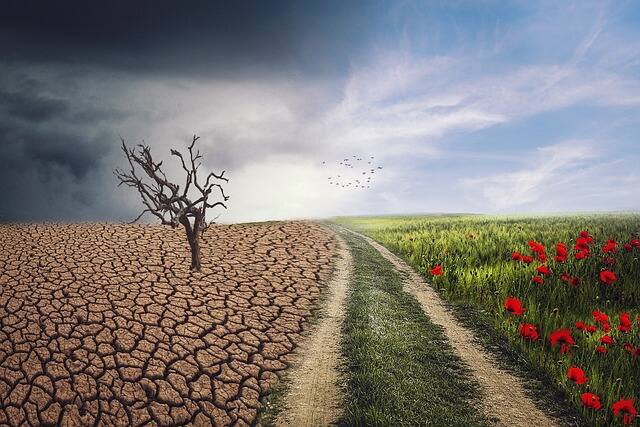The Growing Challenge: Climate Change and Its Impact on Agriculture
Climate change and agriculture is the debate of the time. Agriculture is a cornerstone of human civilization, providing the sustenance needed to support populations around the globe. However, this critical sector is facing an unprecedented challenge: climate change. The effects of a warming planet are becoming increasingly evident, with significant implications for food production, supply chains, and the livelihoods of farmers.
Table of Contents
The Effects of Climate Change on Crop Production
Climate change is altering the agricultural landscape in profound ways. Rising temperatures, shifting precipitation patterns, and extreme weather events are affecting crop yields and the viability of farming in certain regions. For example, maize yields are projected to decline, while wheat could see potential growth in some areas. However, these changes are not uniform and can vary significantly by region and crop type.
The Impact on Soil and Water Resources
Soil and water are the lifeblood of agriculture, but climate change is expected to compromise their quality and availability. Increased extremes in precipitation can lead to soil erosion and nutrient depletion. At the same time, heavy rains can harm water quality by increasing agricultural runoff. These changes threaten the foundation upon which successful farming is built.
Livestock and Climate Change
The health and productivity of livestock are also at risk due to climate change. Heat stress can lead to lower production of milk and eggs, slower weight gain, and decreased reproduction in animals such as dairy cattle, poultry, and hogs. Additionally, the prevalence of parasites and diseases that affect livestock may increase.
The Role of Greenhouse Gas Emissions in Agriculture
Agriculture itself is a significant contributor to greenhouse gas emissions, with activities such as enteric fermentation in ruminants, manure disposal, and rice cultivation being substantial sources. Reducing these emissions is essential for mitigating the impact of climate change on agriculture and achieving broader environmental goals.
Strategies for Resilience and Adaptation
Farmers are not passive victims of climate change; many are actively implementing strategies to adapt and build resilience. Practices such as planting shelterbelt trees, reducing tillage, and improving land management can protect soil health and water quality. Additionally, the development of new crop varieties and farming practices designed to withstand changing conditions is underway.
The Need for Support and Investment
Farmers require support in the form of funding, technical assistance, and access to conservation programs to effeciently fight the challenges posed by climate change. Investment in public research and infrastructure is also critical to equipping the agricultural sector with the tools needed to adapt.



[…] that threaten the survival of countless species. This article examines the challenges posed by climate change to global biodiversity. It explores the solutions that can help mitigate these […]
[…] local farms that sell directly to consumers through farmers’ markets and community-supported agriculture (CSA) programs. This supports local economies by keeping money within the community and creating […]